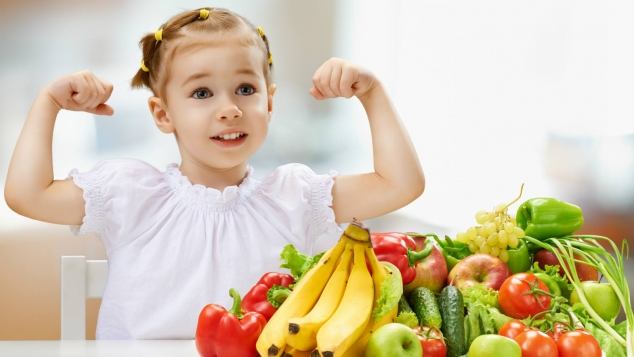
The Best Foods for Children's Brains
It's no secret that proper nutrition is essential for a healthy body and mind. However, when it comes to our children, it is crucial to ensure that they receive the appropriate nutrients for their proper development. In this blog post, we'll explore the five best foods for kids' brains, including whole grains, proteins, healthy fats, and iron-rich foods. We will explain why these foods are essential for your child's well-being and mental growth. Armed with this knowledge, you can ensure that your child's diet includes the nutrients needed for mental growth.

1. Whole Grains: They Enhance Cognitive Function
Nutrition plays a fundamental role in the cognitive development of children. To support healthy growth, it is essential to ensure that children eat a balanced diet. Whole grains are an excellent source of vitamins and minerals essential for optimal brain health, including oatmeal, quinoa, barley and brown rice. These grains promote cognitive function, improve digestion and immunity, and may reduce the risk of some diseases. Adding fruit or spices like cinnamon or nutmeg can make whole grains more appetizing to kids.
Omega 3 fatty acids are essential for children's brain development as they improve communication between neurons, promoting cognitive functioning, such as memory retention and recall speed. In addition to whole grains and Omega 3-rich sources such as salmon, walnuts, chia seeds and flaxseeds, children need fruits and vegetables rich in vitamins, minerals and antioxidants to support healthy brain growth. Dark green leafy vegetables, legumes, nuts, cabbage and fruits are some examples of these foods.
Lean proteins such as poultry, beef, seafood, fish, eggs or nuts are also great sources of nutrition for brain health. It is important to incorporate a variety of these foods into your child's diet to ensure that he receives all the essential micronutrients he needs for optimal cognitive function. Berries, prunes, chia seeds, sweet potatoes, yogurt, beans, lentils, etc. They are also valuable foods that will nourish your child's body. So, consider incorporating them into your daily routine!
The Unique Impact of Whole Grains on Brain Development
When it comes to a child's brain development, nutrition plays a crucial role and we, as parents, want to provide our children with all the resources necessary for healthy growth, including a proper diet. Whole grains are a great source of fuel for a child's brain, packed with key nutrients that offer a range of benefits for cognitive and emotional development.
Whole grains contain various nutrients, such as fiber, B vitamins (thiamine, riboflavin, niacin, and folic acid), minerals (iron and zinc), antioxidants, and omega-3 fatty acids, which synergistically provide optimal brain function.
To incorporate more whole grains into your family's diet, replace refined products, such as white bread or pasta, with healthier alternatives such as whole-grain bread or brown rice pasta. Try options like quinoa or barley, both rich in protein and fiber, for salads or soups. You can also choose from nutritious options, such as oats, bulgur, millet and kamut flour, all excellent sources of dietary fibre.
Research has also found that nutrition during early developmental stages, from infancy to adolescence, can significantly impact cognitive functioning later in life. A balanced diet can promote physical growth while supporting optimal mental performance. Encourage your children to eat a variety of foods, including fruits and vegetables, lean proteins such as poultry and fish, dairy or milk alternatives, legumes or beans, cereals and fortified breakfast cereals such as oatmeal, healthy fats from sources like avocado and nuts/seeds, salmon rich in vitamin B12 and Omega 3 fatty acids, fermented foods like sauerkraut and kimchi, herbs and spices, and water hydration.
By providing your children with an abundance of nutrient-dense foods at an early age, you can help fuel their brains and prepare them for future success.
2. Fruits and Vegetables: Improve Brain Performance
As a parent, you want to make sure your children get the best start in life possible. One of the most crucial steps in this process is making sure they get all the nutrition their developing brains need. Fruits and vegetables are among the best food choices for children's brain development, as they are rich in nutrients that can improve cognitive performance. Use this guide to get the most out of your child's diet:
fruits and vegetables are rich in essential vitamins and minerals that help support brain health, and some types even contain compounds that can improve cognitive function. Examples include berries, bananas, spinach, kale, tomatoes, peppers and broccoli. Encouraging your child to eat a variety of colors will provide them with a range of nutrients. Also
Protein-rich foods, such as meat, eggs, beans and nuts, help brain development in children. Protein is essential for building new cells in their body, which can lead to healthy brain growth over time. Including these types of foods in their diet regularly will provide them with energy and help create new connections between neurons, making learning more efficient for children.
Leafy greens are a good source of folic acid, which helps form new strands of DNA, an important aspect of growing minds. Low-fat dairy products, such as milk and yogurt, contain necessary minerals such as calcium, which helps build strong bones while supporting healthy nerve function. Whole grains, such as oatmeal or quinoa, contain B vitamins and carbohydrates, both of which are essential for energy needs during periods of rapid growth.
Fish is an excellent source of omega-3 fatty acids and vitamin D, both of which are critical for preserving memory and maintaining mental capacity, not only during childhood but throughout life. Children should consume at least two servings of fish per week, such as salmon, tuna, sardines, mackerel or trout to provide these valuable nutrients. Eggs are also an excellent source of vitamin B12, protein and essential fatty acids, which support cognitive function.
Incorporating a variety of foods into each meal, including fruits and vegetables, whole grains, lean proteins and seafood, will provide your child with all the nutrition needed to grow into a healthy adult primed for future success.
Why Different Fruits and Vegetables Are Important for Children's Cognitive Development
When it comes to children's cognitive development, nutrition plays an important role. A balanced diet full of nutritious foods can help children think better, learn faster and stay focused for longer periods of time. Fruits and vegetables are especially important for providing the vitamins, minerals and nutrients needed for brain development.
Proper nutrition is essential to support physical and mental growth in young children. Key elements such as vitamins A, C, B6, B12; minerals such as iron; healthy fats like omega-3s; antioxidants like carotenoids and proteins like poultry or fish provide optimal brain nutrition. Fruits and vegetables contain these vital nutrients, which support growth while reducing the risk of chronic disease later in life.
Daily exercise improves the flow of oxygen to the brain, stimulating brain development in young minds and improving concentration levels. It's also important for children to eat well-balanced meals with plenty of fruits and vegetables, whole grains, proteins, and healthy fats like nuts and eggs.
Encouraging children to eat healthily can be simple. Offer small portions more frequently, plan balanced meals in advance, involve children in meal planning, and use colorful fruits and vegetables to make meals exciting. Snacks between meals should be light but nutritious, using unsalted nuts, seeds and fruit smoothies instead of sugary snacks such as chocolate bars and chips.
In conclusion, including a variety of fruits and vegetables in a child's diet is highly recommended for adequate nutrient intake to support proper development and preserve memory recall ability over time.
3. Proteins: Ensure the Growth of
Nerves Proteins are essential for the development of a healthy brain, fueling cognition, memory, and other important aspects of brain functioning. Children need at least 20 to 30 grams of protein per day to promote optimal mental development, but the exact amount depends on age and weight. To ensure your child gets enough protein, provide a well-balanced diet that includes whole grains, fruits and vegetables, as well as lean protein sources such as poultry, beef, seafood, fish, eggs or nuts.
Fish is an excellent source of omega-3 fatty acids and vitamin D, which protect the brain from memory loss. Meanwhile, seafood contains many other nutrients that improve overall brain health. Eggs are another great source, containing choline, which aids cognitive functioning. Antioxidant-rich products help reduce inflammation, which can negatively affect learning processes among children if not managed properly.
To provide your child with the nutrients needed for optimal brain function, focus on feeding nutrient-dense foods such as whole grains, lean proteins, legumes, fruits and vegetables. Including different types of food will ensure they don't get bored eating all the same things
Parents should also remember to limit their children's intake of added sugars and unhealthy fats, as they offer little nutritional value and can negatively affect overall brain performance. It is recommended that children get about 10 to 35 percent of their daily calorie intake from fat. To help achieve this goal, choose our healthy fats




Comment
This site is protected by hCaptcha and the hCaptcha Privacy Policy and Terms of Service apply.